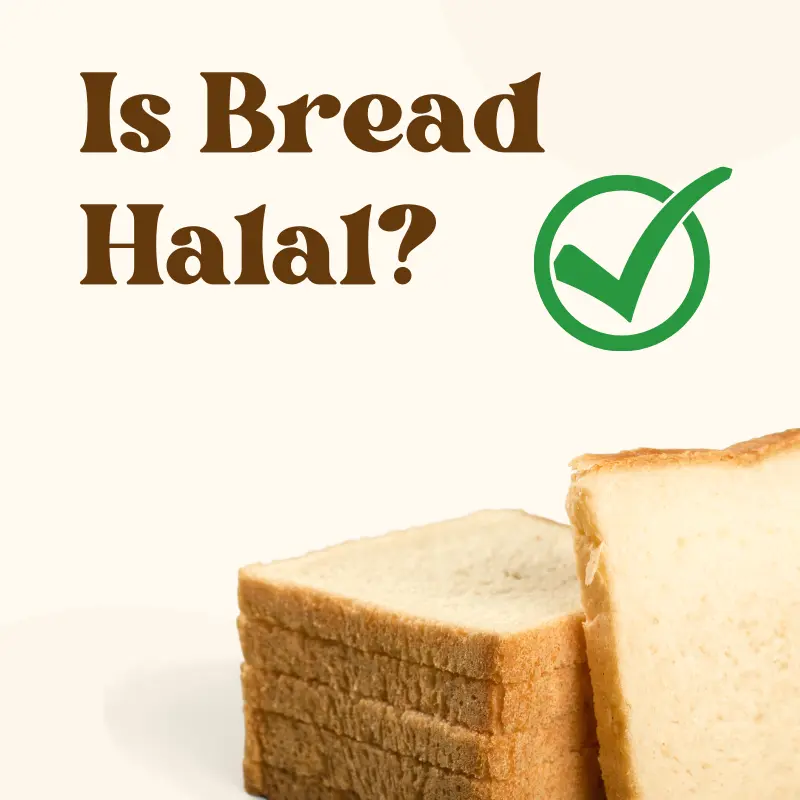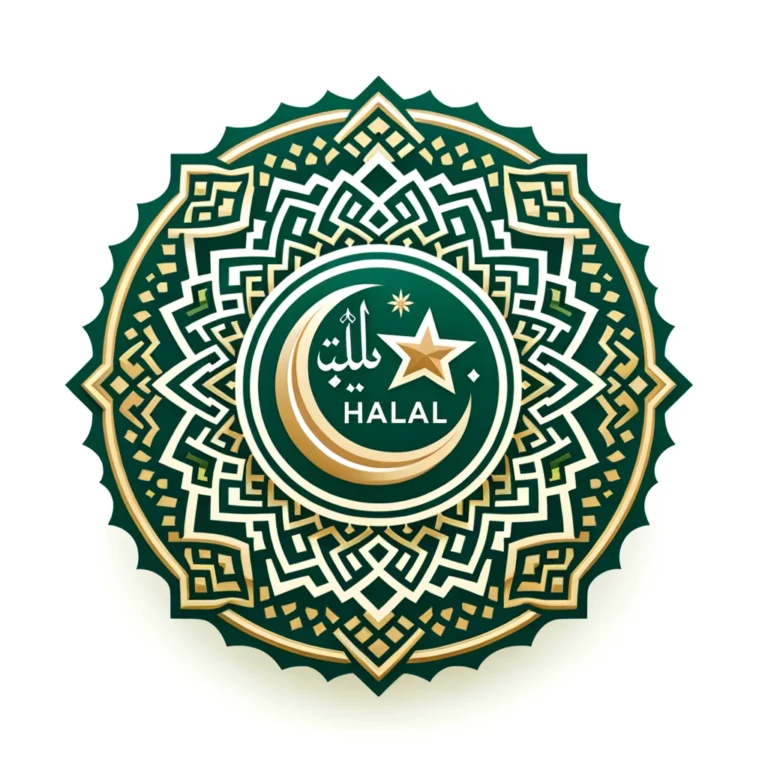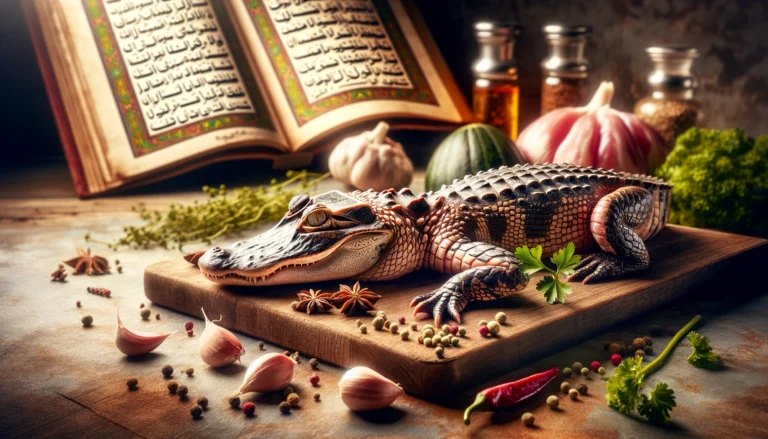Is Bread Halal? All You Need To Know
Is bread halal? Bread is a common food that has been around for a long time. It’s made from flour, water, yeast, and sometimes other things like salt, sugar, or fat. There are lots of different types of bread you can find everywhere. People like it because it can be used in many different ways when cooking.
First, the ingredients are mixed together to make a dough. Then, the dough is kneaded to make it stretchy and bouncy. This is because of a special protein called gluten. Next, the dough is left alone to get bigger. This happens because of tiny organisms called yeast that make bubbles of gas. The dough keeps growing until it doubles in size. After that, the dough is shaped into the desired bread shape and put in the oven to bake. While baking, the dough gets cooked, and the gluten sets, giving the bread its final texture and shape.
Is Bread Halal?
Yes, bread is generally considered halal. Halal means that it is allowed according to Islamic dietary laws. Bread is made from simple ingredients like flour, water, yeast, and sometimes salt or sugar, which are all halal in Islam.
However, it’s important to check the specific ingredients and how the bread is made, as some commercial breads might have non-halal additives. Also, if bread is prepared or served in a facility that handles non-halal ingredients, it’s crucial to take precautions to maintain its halal status.
The Quran states that:
Allah has allowed you to eat from whatever is on earth, provided it is halal and pure.
Ingredients of Bread
The basic ingredients of bread are:
Flour: It is the primary ingredient in bread and gives it structure. Different types of flour, such as all-purpose flour, bread flour, or whole wheat flour, are commonly used in bread recipes.
Water: It hydrates the flour and helps in forming the dough.
Yeast: Yeast is a tiny organism that causes fermentation in the dough. During this process, it produces carbon dioxide gas, which makes the bread rise. Yeast is available in two common forms: instant yeast and active dry yeast.
Salt: It enhances the flavor of the bread and regulates yeast activity.
Sugar: It acts as food for the yeast and also adds a touch of sweetness to the bread. It can be in the form of granulated sugar, honey, or other sweeteners.
Fat: This is an optional ingredient and can be added in the form of oil, butter, or shortening. It helps in keeping the bread moist and tender.
Other optional ingredients: Bread recipes can include additional ingredients such as eggs, milk, seeds, nuts, or spices to enhance the flavor and texture of the bread.
How Is Yeast Obtained?
Yeast is obtained through a process known as fermentation. It can be naturally occurring or commercially produced.
Natural Yeast: Natural yeast, also called wild yeast or sourdough starter, is obtained by capturing yeast spores from the environment. This can happen spontaneously in the presence of flour and water. The captured yeast spores begin to multiply and ferment the mixture, creating a sourdough starter that can be used as a leavening agent for bread.
Commercial Yeast: Commercial yeast is produced on a large scale in controlled environments. There are two main types of commercial yeast:
Active Dry Yeast: Active dry yeast is made by dehydrating a mixture of yeast, water, and a protective coating. It is typically sold in the form of granules or pellets. To activate it, the yeast needs to be rehydrated in warm water before adding it to the dough.
Instant Yeast: Instant yeast is similar to active dry yeast but undergoes a different drying process. It is milled into smaller particles and does not require prior rehydration. Instant yeast can be added directly to the dry ingredients in a recipe.
Is Yeast Used In Making Bread Halal?
Yes, yeast is halal and allowed for use in making bread. Yeast is a microorganism that makes bread dough rise by producing carbon dioxide gas during fermentation. It is obtained from natural sources and is not considered impure or forbidden in Islamic dietary guidelines. Whether it is natural yeast or commercial yeast like active dry yeast or instant yeast, they are commonly used in bread-making and are considered halal.
Can Muslims Eat Bread?
Yes, Muslims can eat bread. Bread is a staple food that is generally permissible (halal) for Muslims to consume. However, it’s important for Muslims to ensure that the bread they consume is prepared in accordance with Islamic dietary guidelines. This includes checking the ingredients and ensuring that there are no non-halal additives or cross-contamination with non-halal substances.
Is White Bread Halal?
Yes, white bread is generally considered halal. Basic ingredients used in making bread, such as flour, water, yeast, and salt, are all halal. However, it’s crucial to be aware that certain additives, preservatives, or processing methods used in specific brands or types of white bread may not be halal. It is advisable to check the ingredient list or look for halal certification labels on the packaging to ensure that the bread meets the halal standards.
What makes bread non halal?
Bread is generally regarded as halal for consumption by Muslims, unless it contains ingredients that are haram. Examples of haram ingredients in bread include lard (pig fat), alcohol, or any other substance derived from animals that are not slaughtered according to Islamic guidelines. Moreover, bread produced in facilities that also handle haram ingredients or those that are contaminated with haram substances may be considered non-halal.
Is Bread Halal Alcohol?
In Islamic dietary guidelines, the consumption of alcohol is strictly forbidden. Therefore, bread that contains alcohol would generally be considered non-halal.








